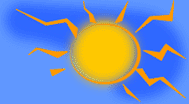|
From humble origins, the Department of Government in the 1990s has developed an outstanding record of teaching, research,
publications and public service.
Created in 1960 (just two years before Jamaica's independence from British
colonial rule) as a component of the new Faculty of Social Sciences (of the then University College of the West Indies (UCWI),
the Departmment of Government began by offering two programmes: a group of courses constituting Government as a subject specialization
in the B.Sc. Econ. degree and one-year in service Diploma in Public Administration (DPA). Optional course offerings in Politics
and Public Administration were also added to the first year course in Political Institutions for the B.A. which had been introduced
in the preceding year.
In a rich decade of development, during the 1960s, despite considerable instability
in staffing and functioning within a turbulent environment-both inside and outside of the University-a hierarchy of programmes
had evolved by 1971. Beginning with the Certificate in Public Administration (CPA), they moved upwards through the B.Sc.
(in separate specialized areas viz. Political Science, Public Administration, International Relations), the DPA to the M.Sc.
and Ph.D.
Today first degrees may be pursued in all the abovementioned areas in addition to a degree in Africa
and Afican Diaspora Studies. Graduate degrees, are also offered in International Relations, Comparative Politics/Political
Theory and Public Administration.
Do you wish to know what a degree from the Department equip you to do?
Then consider a career in:
*Foreign Affairs
*UN-Related Organizations
*The Public
Sector
*University Teaching and Research
*Non-Governmental Organizations
*Journalism
*Law
*The Social Services
*Business
*Politics
Ultimately though, the question
is not what a degree can do for you but what you can do to get a solid degree with career promise and to be able to make a
contribution to society. Many students make creative combinations between political studies and languages, law, economics,
psychology, sociology, management, research methods, journalism, history, and so on. But even so, devotion to scholarship
is the key - spending time to do proper research to write quality papers and to explore the creative ideas that exist in the
literature which give insights into the nature of problems and their possible solutions. Then, the graduate must apply him/herself
to the world - a world begging for solutions in the ways that organisations, structures and ideas work, their impact on people,
their purposes, and their meaning for human development. Wherever there is a complaint, there is sign of a problem and a student
trained in politics has a special responsibility to find solutions to a nation's problems or the problems of the world.
Politics is the highest art and we must aim to be the best artists capable of reconstructing our world to make people's
lives better.
|

